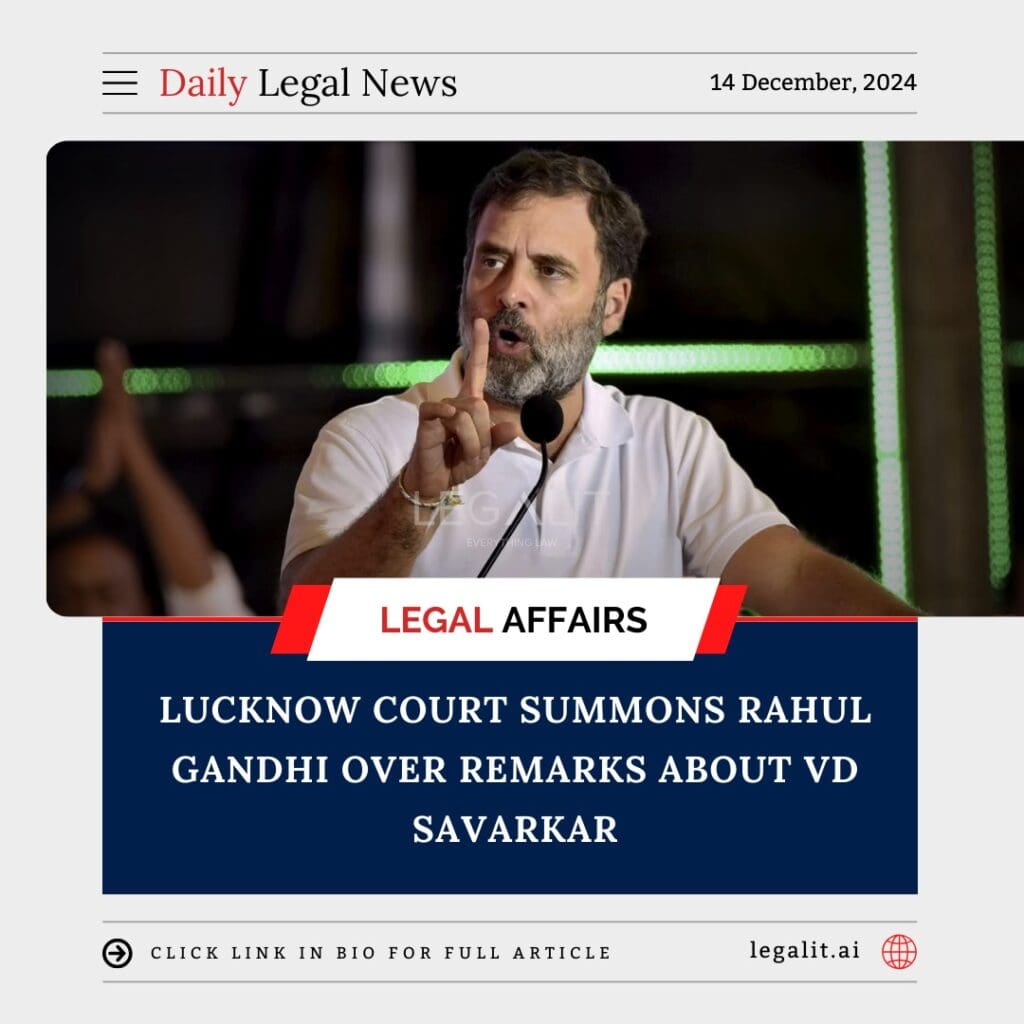
A Lucknow court has issued a summons to Congress leader Rahul Gandhi in connection with a complaint filed against him for allegedly making disparaging remarks about Vinayak Damodar Savarkar, a prominent freedom fighter and social reformer. The complaint, which was filed by a local BJP leader, claims that Gandhi’s statements tarnished the legacy of Savarkar and violated his reputation. Gandhi has been asked to appear before the court to respond to the allegations.
Background:
The controversy stems from remarks made by Rahul Gandhi during a public address, where he reportedly criticized the actions and ideologies associated with VD Savarkar. Savarkar, who was a key figure in the Indian independence movement, remains a polarizing figure in Indian politics. While some view him as a hero for his contributions to the freedom struggle, others criticize his controversial stance on issues like the partition and his association with Hindutva.
The complaint against Rahul Gandhi argues that his comments were defamatory and aimed at undermining Savarkar’s contributions to the nation’s independence. The case highlights the ongoing debate over the interpretation of historical figures and their legacy, especially when it comes to political discourse. The Lucknow court, upon reviewing the complaint, decided to summon Gandhi to appear before it, which has led to further political discussions and reactions from various quarters.
Court’s Rationale:
The court’s decision to summon Rahul Gandhi is based on the premise that the remarks made during his speech may have breached legal provisions regarding defamation and insult. In defamation cases, the court typically examines whether the statements made are likely to harm the reputation of an individual or a public figure. The legal standard for defamation involves whether the comments were made with malicious intent or whether they fall under the category of permissible free speech.
While Gandhi has maintained that his remarks were within the bounds of freedom of expression, the complainants argue that such statements could incite division and animosity among different communities, especially given the significant political implications surrounding the legacy of VD Savarkar.
Existing Measures:
In India, defamation law is governed by both civil and criminal statutes, with individuals who feel their reputations have been harmed by public statements having the option to file complaints in court. The courts often play a key role in balancing the right to free speech with the protection of individuals’ reputations.
In high-profile cases such as this, where the alleged defamation involves prominent political figures, the courts are required to tread carefully to avoid creating a chilling effect on public discourse while ensuring that the interests of justice are served. Legal experts suggest that this case may have far-reaching implications on how freedom of speech is defined when it comes to remarks about historical figures, especially in politically sensitive contexts.
Conclusion:
The summons issued by the Lucknow court against Rahul Gandhi is a significant development in the ongoing political and legal discussions surrounding historical figures and their portrayal in public discourse. As the case progresses, it is expected to generate further debate on the limits of free speech and the role of the judiciary in addressing political defamation. The outcome of the case could set a precedent for similar cases in the future, particularly when it comes to controversial remarks made about influential figures in India’s history.